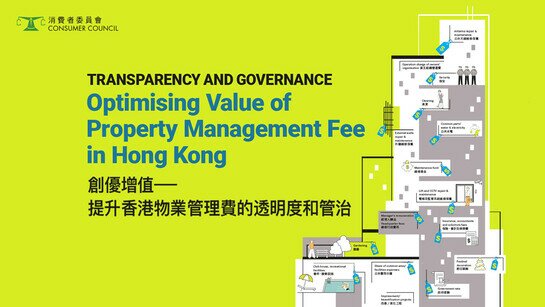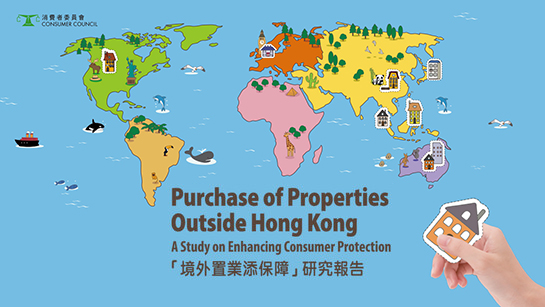Executive Summary
Introduction
In Hong Kong, litigation is in most cases the only option for consumers in dispute with traders who fail to reach a settlement and want to further pursue their claims; or who want a legally binding decision on the question of “who is right or who is wrong”.
The other options for similar redress with a legally binding decision, namely arbitration and adjudication are predominately used to resolve commercial disputes. The applications of arbitration and adjudication to consumer dispute resolution are basically confined to the finance and insurance industries with the schemes respectively operated by the Financial Dispute Resolution Centre and the Insurance Claims Complaints Bureau.
As far as litigation is concerned, while most consumer disputes involve modest amount of money, the likelihood of prolonged time consumed and delay, mental and physical strain and high legal costs and complicated legal procedures may deter aggrieved consumers from resorting to legal action.
Legal assistance rendered by various public funded schemes such as Legal Aid and Consumer Legal Action Fund may to a certain extent mitigate the disincentives. But it benefits only a small number of aggrieved consumers since it is limited in scope and subject to stringent eligibility requirements.
In this premise, consumer redress would be better facilitated, if a cost-effective and time-efficient adjudicative option other than litigation is available in general to aggrieved consumers who are minded to have their disputes with traders resolved with a binding decision on merits.
Potential Demand for Alternative Consumer Adjudicative Process
The Report finds that the potential demand for such an adjudicative option for resolving consumer disputes is substantial.
It is reflected by the average number of unresolved complaints cases handled by the Consumer Council (“the Council”), which amounts to approximately 5,000 per annum. These cases fall into different sectors such as beauty services, decoration and renovation services. Apart from that, there are other unresolved cases handled through different means of alternative dispute resolution (“ADR” i.e. procedures for resolving disputes by means other than litigation), such as direct negotiation and mediation by other organizations. What cannot be overlooked is that there are also consumers who intend to seek a binding adjudication rather than a commercial settlement which, though also legally binding, does not address the issue of merits.
Definition of Consumer
The Council takes the view that an adjudicative model for resolving consumer disputes in an inexpensive, efficient and effective manner should be accessible to classes of person who can reasonably be considered as consumers. As such, the notion of “consumer” adopted in this Report is broader than those found in some pieces of consumer protection legislation in Hong Kong. It is defined as:
“A party to a contract (including an individual, corporation and business) relating to goods, services, immovable properties, financial products or services (“commodities”) ordinarily supplied by a trader for private use, consumption or benefit who neither make the contract in the course of a business nor holds himself out as doing so; or a third party to any of the contracts mentioned above acting in relation to the commodities for a purpose outside his business, trade or profession and receiving benefit from the contract either directly or indirectly.”
Terms of Reference
In the search of such an adjudicative option, the Council has identified arbitration as a subject of study. This Report considers and studies the role of arbitration in the regime of ADR for consumer protection in Hong Kong and makes suitable recommendations generally.
Proposed Adjudicative ADR Model
Having compared arbitration with adjudication, the Council concludes that a new adjudicative ADR model should be developed on the basis of arbitration. It follows that the application of arbitration, currently used for commercial disputes, should be extended to resolving general consumer disputes, so as to cater for the need of consumers who would like to seek a binding decision and/or legal redress against traders, but are deterred by the disincentives for litigation.
This Report opines that consumer arbitration should not be a stand-alone procedure. Interplay between arbitration and other ADR processes has been considered. It is concluded that the use of arbitration in conjunction with mediation would be preferable. Such a model would offer the parties a chance to make recourse to a consensual process more likely to be cost-effective and capable of maintaining amicable relationship before going for an adjudicative process that may be contentious and more costly.
Readiness in Applying Arbitration in Conjunction with Mediation to Consumer Disputes
The local ADR landscape in terms of infrastructure, culture and environment are all ready for introducing consumer arbitration.
Arbitration has been well developed and continues to evolve within a robust infrastructure supported by a sound legal framework, abundant and effective professional manpower, and proactive government promotion and encouragement. Mediation is also in a dynamic and robust development under the encouragement and promotion of the Administration and the Judiciary. This Report opines that a fertile breeding ground is in place for such a “med-arb” model to take root.
Learning From Different ADR Models for Consumers in Other Jurisdiction
In formulating the attributes of this model, this Report examines the approaches adopted by other jurisdictions in resolving consumer disputes. The research finds that an interplay between different ADR processes, namely conciliation, mediation, adjudication and arbitration is common, although there may be some variance amongst the jurisdictions in terms of relevant legal definitions and formality of procedure. As a whole, in all examples found, the parties are generally given the chance to settle through a consensual process before an adjudicative process is invoked.
Funding and support of ADR schemes in other jurisdictions vary. It can be through the government, as in the case of Portugal, which may ensure fairness, independence, impartiality and neutrality. Industry funding is also found, by way of membership schemes, under the principle of “user pays” with statutory backup to the effect that traders are mandated to join the schemes, such as those found in the financial sector in Australia and the United Kingdom.
The experience of the industry-funded consumer arbitration schemes in Canada, with no government involvement, demonstrates the risk of domination and control by traders which can impair the impartiality and neutrality of such a scheme. Undue advantages can also be taken by some traders as a result of the “repeat player effect” found, for example, in an ADR scheme in Quebec, Canada, where traders continually found themselves before the same arbitrators, and thereby acquired knowledge of different arbitrators’ tendencies, and chose the arbitrator who is likely to be most favourable to them.
Examples of mergers that have taken place between different ADR schemes, covering different industry sectors, under a single institution were found in the Financial Ombudsman Service of Australia and the Financial Industry Disputes Resolution Centre Singapore.
In addition, the Report identifies a model in the United Kingdom that features a robust coordinating and quality assurance body sitting in supervision above a number of different sector specific ADR schemes.
Looking Forward
This Report concludes that an institutionalized consumer dispute resolution process using arbitration in conjunction with mediation, compatible to the local context and the current ADR regime, should be introduced with a view to giving consumers of Hong Kong a feasible and practical choice to resolve their disputes with traders without resorting to legal proceedings.
This model will provide a dispute resolution process cheaper and quicker than litigation. It also enables consumers to rid themselves of tremendous physical and psychological strains resulted from the lengthiness, costliness and uncertainty of legal action. For traders, apart from saving time and costs which may otherwise be incurred by litigation, confidentiality of the dispute resolution may help them preserve goodwill while maintaining harmonious customer relationship.
At a macro level, such a model may help alleviate the caseload of court; and improve social harmony by promoting meaningful direct dialogue opportunity between the parties and alleviating acceleration of anger and mutual mistrust during litigation antagonism. This could in turn enhance the business and consumption environment in a virtuous cycle and achieve social and economic values which cannot be evaluated or assessed in monetary terms.
This Report makes the following recommendations:
Recommendation 1
The Administration should consider establishing or supporting the establishment of a “Consumer Dispute Resolution Centre” to provide the service of “Mediation First, Arbitration Next” to consumer and business in resolving their disputes.
Through an attempt of mediation before arbitration, the parties could better assess the merits of their own cases and the other’s, and carefully consider whether it will be in their interest to pursue further to arbitration or to come to settlement terms. Even if the mediation fails, this approach streamlines the process of arbitration, as parties at the stage of mediation would gain mutual understanding of one another’s position and the issues in dispute through the assistance of a neutral mediator. In such case, the process of arbitration can be conducted in a more efficient and effective manner.
Recommendation 2
The funding of the Consumer Dispute Resolution Centre for covering the costs incurred from its initial set up and recurrent operation should be supported by the Government with effective cost control measures. The recurrent operation include items such as the provision of preliminary legal advice to consumers at the pre-mediation stage, services for mediation and arbitration and legal representation for consumers during arbitration and subsequent appeal. The funding model is to be reviewed after 5 years of operation to see if the Government’s financial support should continue or if it should be gradually transformed into an industry funding model.
Recommendation 3
The Consumer Dispute Resolution Centre should be an affordable avenue for consumers to resolve their disputes with traders. Consumers should be charged no fees for the services of the Consumer Dispute Resolution Centre, including the provision of preliminary legal advice at the pre-mediation stage, services for mediation and subject to merits test, arbitration services and legal representation during arbitration. The purpose of the merit test is to assess whether it is in the interest of the consumer complainant to pursue arbitration so that resources are allocated to cases truly warrant arbitration.
Recommendation 4
Traders’ who joined the Consumer Dispute Resolution Centre must deal with consumer disputes on the request of consumers in accordance with the ADR procedures provided by the Centre.
Only participating traders can display a logo indicating that independent, impartial and affordable ADR procedures provided by the Consumer Dispute Resolution Centre is readily available to consumers should they have any dispute with them.
Recommendation 5
The Consumer Dispute Resolution Centre shall be impartial, independent, and transparent to ensure fairness.
Measures are proposed to implement these principles, such as mutual agreement on the choice of mediators and arbitrators, disclosure of any actual or potential conflict of interests by the mediators or arbitrators, discontinuation of dispute resolution process upon objection and valid justification by a party, non-acceptance of any sponsorship by the Centre which should be governed by a fairly-balanced Board appointed by the Government, provision of full and accurate information on all the procedures and relevant fees involved, timely update of the progress of handling, assistance available and possible solutions for resolving disputes.
Recommendation 6
The claimable amount handled by the Consumer Dispute Resolution Centre should be capped at HK$200,000. From the experience of the Council, the region under such upper monetary limit has already covered most of the consumer complaints. It would allow aggrieved consumers and the opponent traders whose claim amounts falling beyond the jurisdiction limit of the Small Claims Tribunal (HK$50,000), but are not so substantial as to warrant them to spend significant legal costs for proceedings at the District Court, to use the ADR mechanism provided by the Consumer Dispute Resolution Centre. Of course, more people would be benefited from the Consumer Dispute Resolution Centre services if the monetary limit moves upward. However, as the institution is proposed to be public funded, a raise of the limit would mean increase of cost to be borne by the public. Having balanced the competing interests between consumers, traders and society, this Report opines that HK$200,000 is the appropriate cap.
Recommendation 7
The Consumer Dispute Resolution Centre should be underpinned by panels of mediators and arbitrators from diverse disciplines. The arbitration proceedings should be as simple and cost-effective as possible and the legal costs recoverable should be limited so as to minimize the costs for arbitration.
The Consumer Dispute Resolution Centre may employ cost-saving techniques without compromising the principle of fairness, such as “documents-only” arbitration for simple cases; “guillotine” or “chess clock” procedures that fix a reasonable or realistic time for oral hearing; imposing time limits on presentations by the parties at hearing; and capping the recoverable costs of proceedings to a specified amount. Appeal should only be allowed on very limited grounds, mainly on point of law. The costs of appeal should be borne by the CDRC for consumers but it would be subject to another merits test if the appeal is to be lodged by consumers as the losing party.
It should also stipulate its own mediation and arbitration rules to simplify the procedure on (i) the appointment of mediator and arbitrator; (ii) the mediation and arbitration process; (iii) the process and requirements for “documents-only” arbitration and “in-person hearing” arbitration, so that any mediation and arbitration could be conducted in a simple, fast, efficient and effective manner.
Recommendation 8
There should be in place mechanisms for the Council and the Judiciary to refer suitable consumer disputes to the Consumer Dispute Resolution Centre.
Such referral mechanisms would facilitate an efficient dispute resolution network for consumers and traders in dispute. Also, it may reduce the caseload of the Small Claims Tribunal and the District Court and enhance better allocation of resources to other adversarial cases.
Recommendation 9
Merger of the existing consumer dispute resolution schemes into the Consumer Dispute Resolution Centre may optimize cost-effectiveness through resource sharing.
However, given the existing consumer dispute resolution schemes are intrinsically distinct from one another, the consolidation of these schemes may be controversial. Further, operational and administrative difficulties and complications arising from the merger which could be hefty are anticipated.
That said, in shaping the future development of the ADR landscape of Hong Kong, it is worth considering the feasibility and potential impact of the merger.
Closing Remark
As a closing remark, this Report is intended to mark the beginning of dialogues amongst stakeholders including consumers, traders, the Government, ADR organizations and the Council with a view to achieving a better dispute resolution regime for consumers and traders in Hong Kong. The Council looks forward to exchanging views on the subject and serious consideration by the Government which is expected to play a vital role in the proposed Consumer Dispute Resolution Centre.











